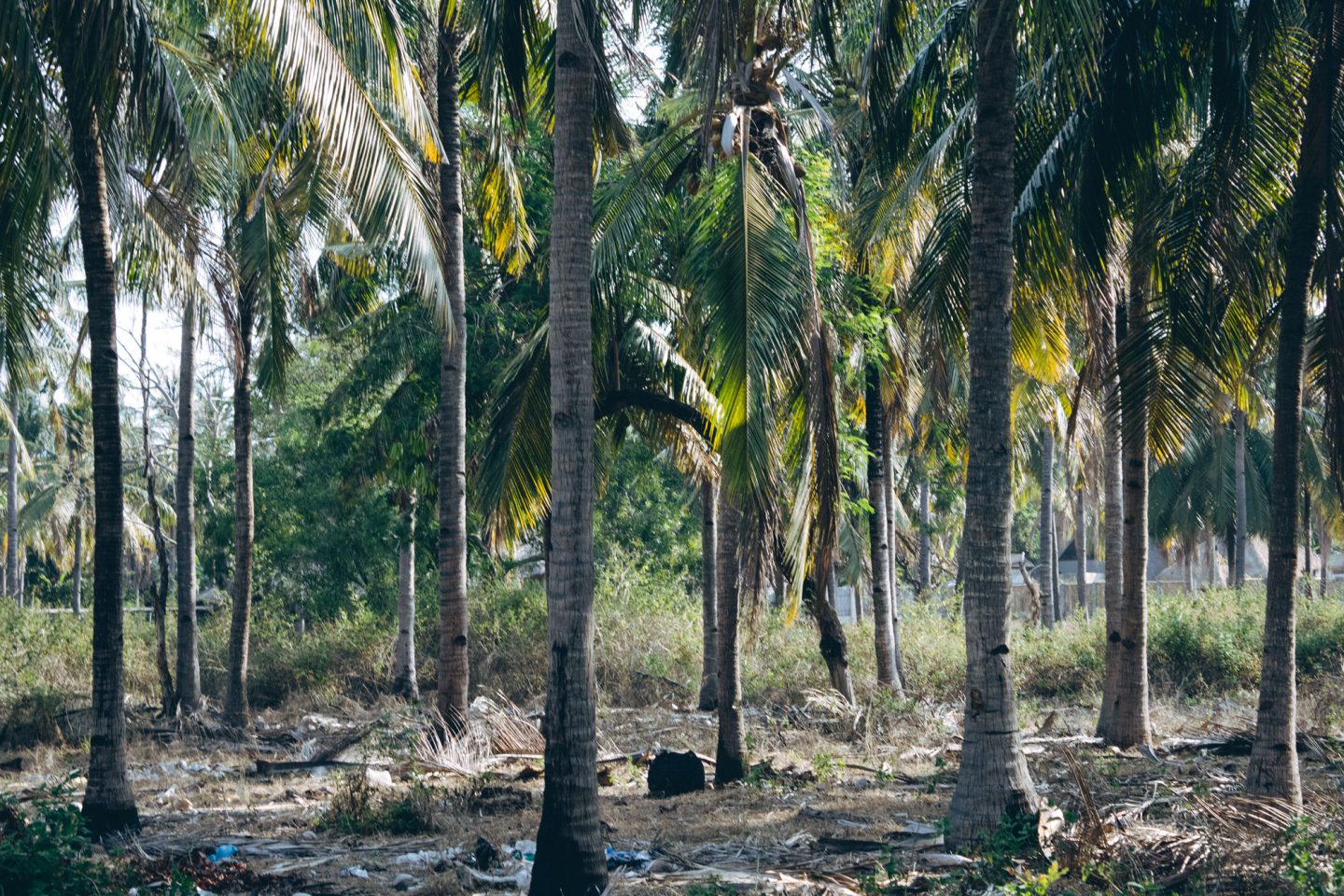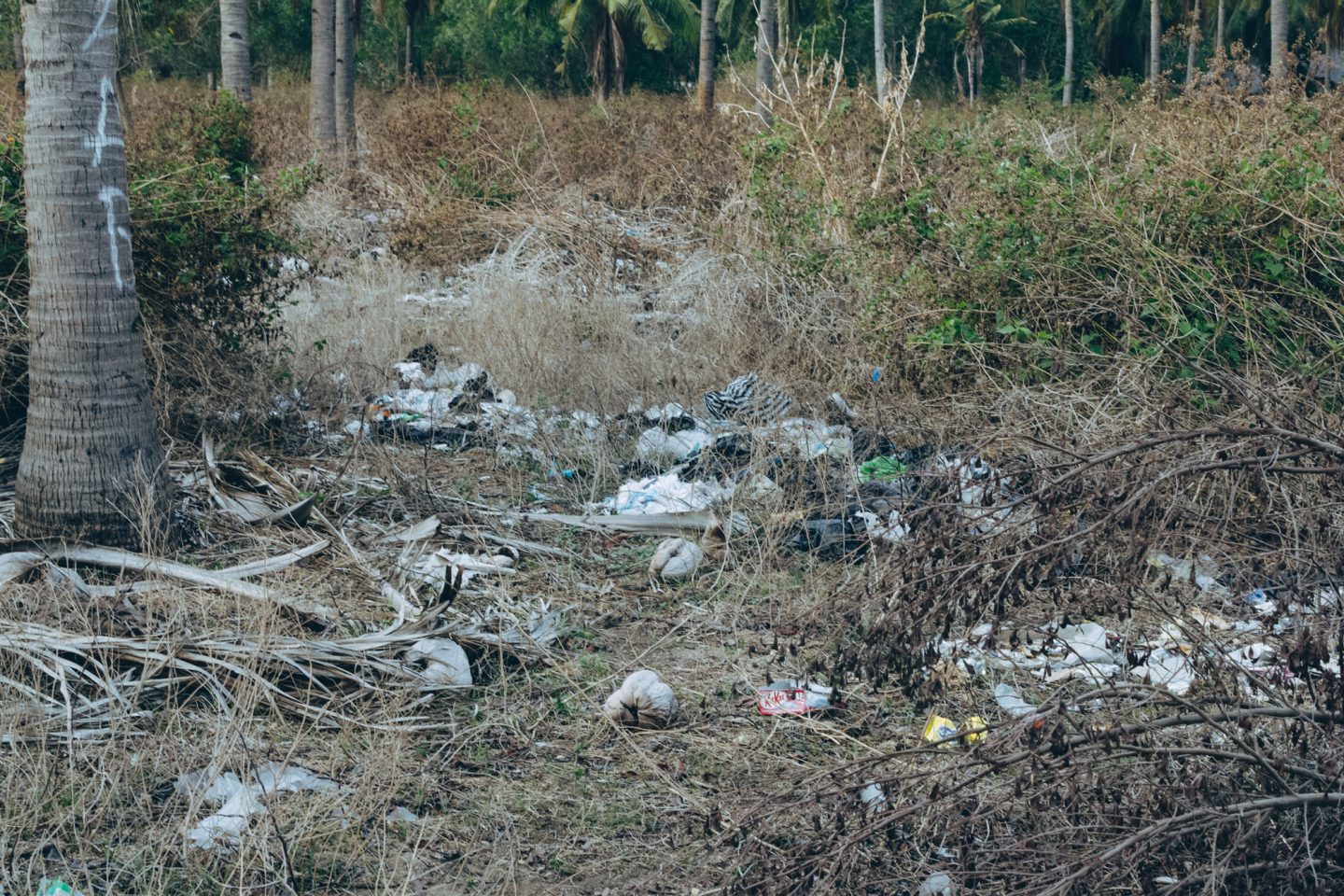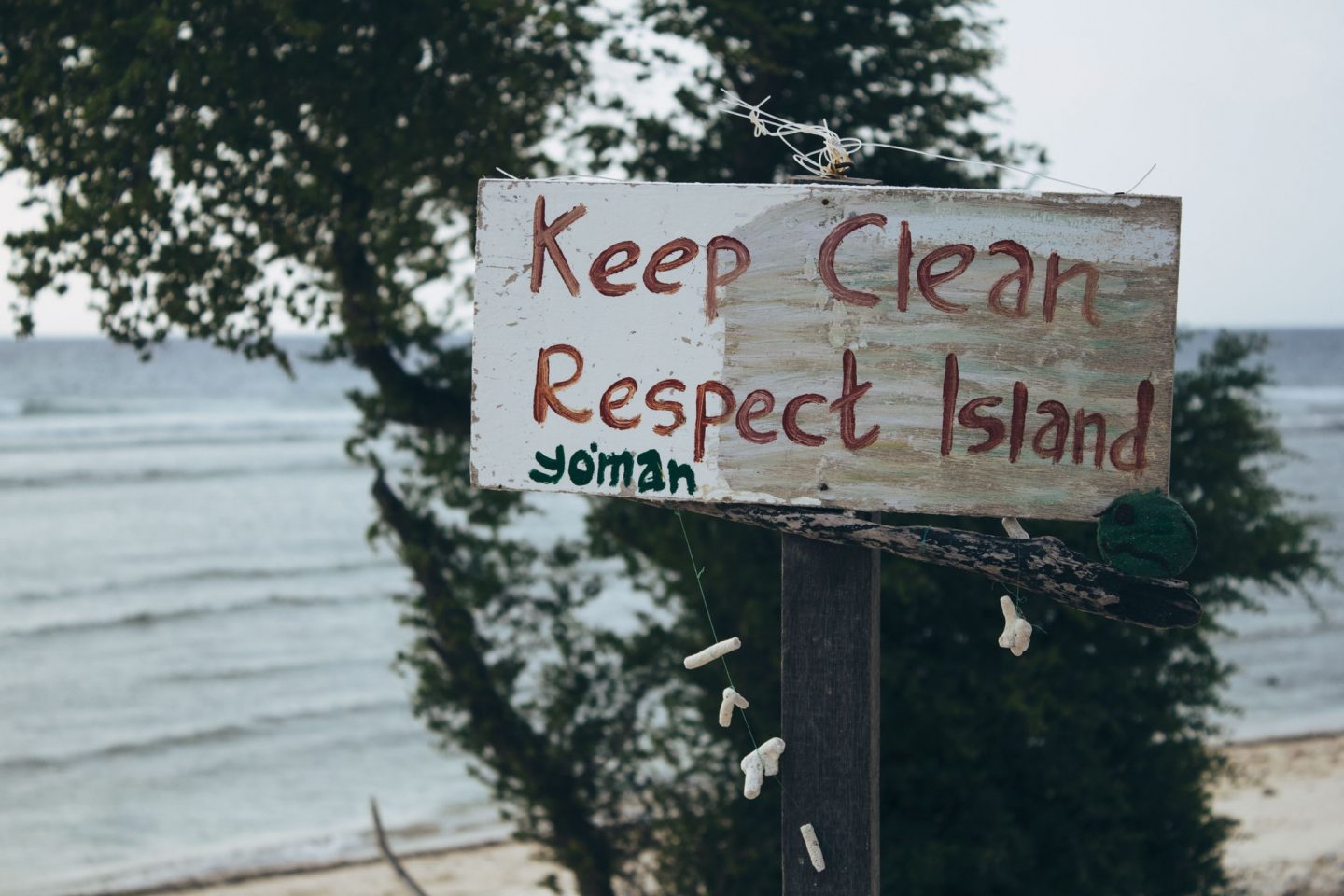
Plastic pollution is headline news at the moment. Waitrose are banning disposable cups, bottle deposit schemes are appearing all over the place, and today I read that the UK government are setting aside £60m to help tackle plastic pollution. Living plastic free in the comfort of your own home is becoming easier by the day. Living plastic free when you’re travelling is a different story.
Last year I was on the Gili Islands in Indonesia, taking an evening cycle across the island. As I rode beneath towering palm trees, I watched as locals milled about their business and cows grazed in the undergrowth. Golden sunlight danced on the sand, and the smell of BBQ hung in the air. It sounds idyllic. Except, the cows were grazing in a field of plastic rubbish, golden sunlight danced over takeaway boxes and the smell of BBQ was mingled with the burning of plastic mounds. It was a heartbreaking sight.
Plastic straws, plastic bags, the water bottles! I couldn’t even begin to imagine just how many plastic water bottles were scattered all over the place. This is what the people who came here had left behind. This was the price of tourism, the price of ‘cheap’ backpacking. It’s the old saying that nothing comes free.

When we travel (and I know I’m guilty), it’s really easy to give into the gods of convenience and low cost. Our visit is only temporary, and so we assume our footprints are too. As I rode that bike across an empty bag of crisps, I realised that our impact when we travel is so much more than when we are at home. Poorer countries don’t have the luxury of efficient waste control and recycling centres. Travellers descend like swarms of locusts in the high season, consume everything and then leave the locals to tidy up, only to repeat this cycle 6 months later.
Using refillable water bottles, saying no to that plastic straw, using a fabric bag – these are all simple gestures that show consideration and respect to the place we are travelling through. We already know the pressures that tourism can bring to places of beauty. Just recently, Thailand announced the closure of the immensely popular Maya Bay, giving it time to regenerate and heal from the hoards of people that visit every day. But plastic waste can’t be easily healed. It doesn’t disappear.
We all know we should reduce plastic, you don’t need me to tell you this. But one less plastic bag in the ocean is one less turtle that dies. One less straw is a patch of sand that remains rubbish free. In the transience of travel, we must remember the permanence of our choices. Learning how to travel sustainably will be a gift to the places we visit.

